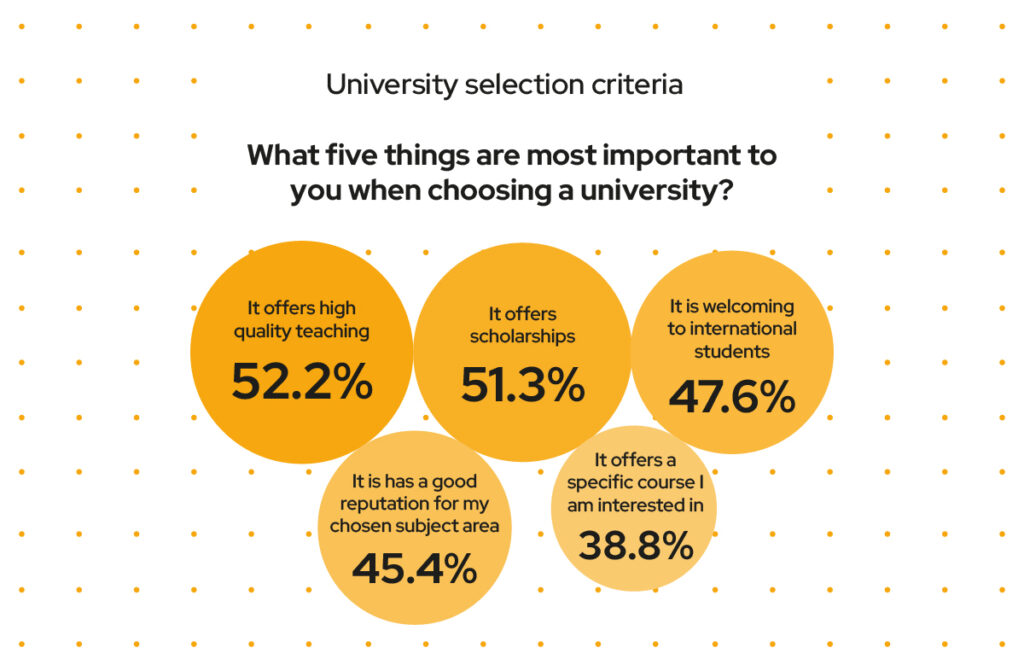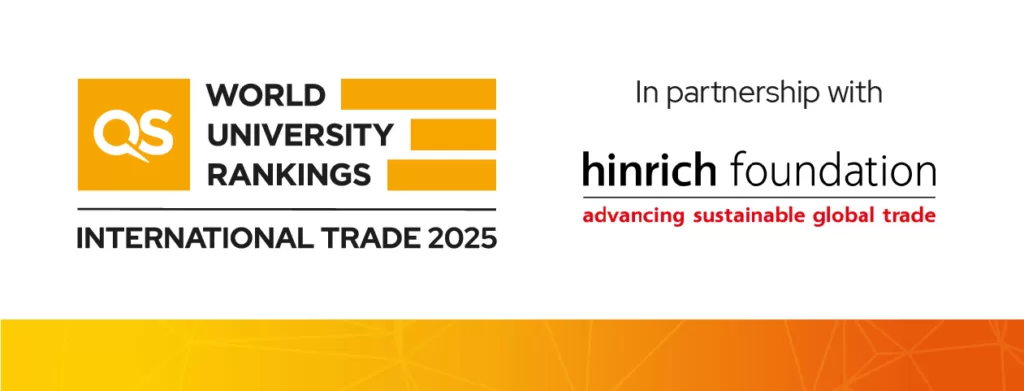
This year’s 13th edition of the QS World University Rankings: Latin America & The Caribbean 2024 features a total of 430 institutions.
For the first time, QS expanded the ranking beyond Latin America to include the Caribbean nations of Jamaica, Grenada and Trinidad & Tobago.
We use eight performance indicators to evaluate academic excellence, performance and reputation across 25 locations:
- Academic reputation – measures an institution’s research, academic partnership approach, strategic impact, innovative educational practices, and impact on education and society at large.
- Employer reputation – a key metric that evaluates the success of a student’s career development after completing their education.
- Faculty student – a proxy metric for the learning environment of the institution is calculated by dividing the faculty figure by the student’s figure validated by QS.
- International research network – assesses global engagement, specifically how institutions create and sustain research partnerships.
- Citations per paper – provides an indication of the impact and quality of its research.
- Papers per faculty – evaluates institutions for the productivity of their researchers.
- Staff with PhD – we can see the percentage of faculty with PhDs in relation to the total faculty number by using this indicator.
- Web impact – institutions are ranked based on their online footprint.
Top ten in QS World University Rankings: Latin America & The Caribbean 2024
This year’s top 10 performers in the QS World University Rankings: Latin America & The Caribbean 2024 are:
1) Universidade de São Paulo, Brazil
2) Pontificia Universidad Católica de Chile (UC)
3) Universidade Estadual de Campinas (Unicamp), Brazil
4) Tecnológico de Monterrey, Mexico
5) Universidad de Chile
6) Universidad de los Andes, Colombia
7) Universidad Nacional Autónoma de México (UNAM)
8) Universidade Federal do Rio de Janeiro, Brazil
9) Universidad de Buenos Aires (UBA), Argentina
10) UNESP, Brazil
While universities in Chile and Mexico appear twice (each), institutions in Brazil dominate the top 10 rankings with four entries – including Universidade de São Paulo (in first place), scoring a perfect 100 in ‘Academic reputation’, ‘Web impact’, ‘International research network’, ‘Staff with PhD’ and ‘Papers per faculty’.
More universities in the top 10 are also achieving outstanding scores in some of these indicators – such as Universidade Estadual de Campinas (Unicamp) and UNESP in ‘Papers per faculty’ and ‘Staff with PhD’. This indicates that these institutions have invested heavily in research, with high academic output and exceptionally qualified staff. In return, they have produced highly cited research that is widely published.
Universidade Federal de Minas Gerais, Universidad Nacional Autónoma de México (UNAM) were among those to score high in their web impact, while Universidad de Chile and Universidad de Buenos Aires (UBA) scored high in the ‘Academic reputation’ indicator – awarded to those offering excellent academic programmes and a strong reputation for innovative research.
Notably, we recognised institutions outside the top 10 rankings who have also achieved perfect scores of 100 including Universidad Nacional de Colombia (ranked 12th) in their employer reputation, Colegio de México (ranked 80th) and Universidad Torcuato Di Tella (ranked 45th) in ‘Staff with PhD’, and Universidade Federal de São Paulo (ranked 27th) and Pontificia Universidad Católica Argentina in ‘Faculty student’.
New entrants
This year features five new countries, accounting for six new universities: Jamaica (two), Grenada, Guyana, Suriname, and Trinidad and Tobago each with one.
Among the newest entries, it is noteworthy that some institutions are excelling within certain indicators – such as St George’s University with 100 in ‘Faculty student’, Escuela Agricola Panamericana (Zamorano) with 100 in ‘Citations per paper’ and University of West Indies at Mona with 83.8 in ‘International research network’.
What do prospective students from Latin America and the Caribbean region want from a university?

According to the latest QS International Student Survey 2023 which collected 1,239 responses from this region, more than 52% of Latin American and Caribbean students believe high quality teaching is the most important factor when choosing a university.
The following popular factors also influenced prospective students from the region: scholarship offers (51%), it is welcoming to international students (48%), a good reputation for chosen subject area (45%) and if it offers their preferred courses (39%).
Furthermore, our latest report (discussing what 47,279 students expect from North American universities) also revealed that 64% of prospective students looking to study in the US scored high-quality teaching as the most significant factor – while it played a major role in determining their choice of country and university also.
When assessing the quality of teaching in other popular locations, like Canada, prospective students place a greater emphasis on employability metrics, such as graduates’ employment rates and work placements – indicating that Canada is better known for its favorable employment conditions after graduation.
Looking for more data-driven insights from the QS insights team? You are invited to attend our webinar ‘Insights for impact: LATAM’ on 20 September – a 60-minute overview of the challenges, changes and prospects affecting higher education in the LATAM region. The event will also provide an opportunity to ask our experts questions about how institutions can improve their global reputation, performance and internationalisation.



